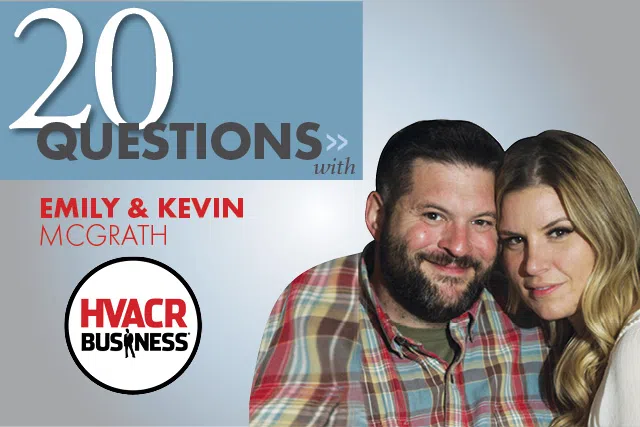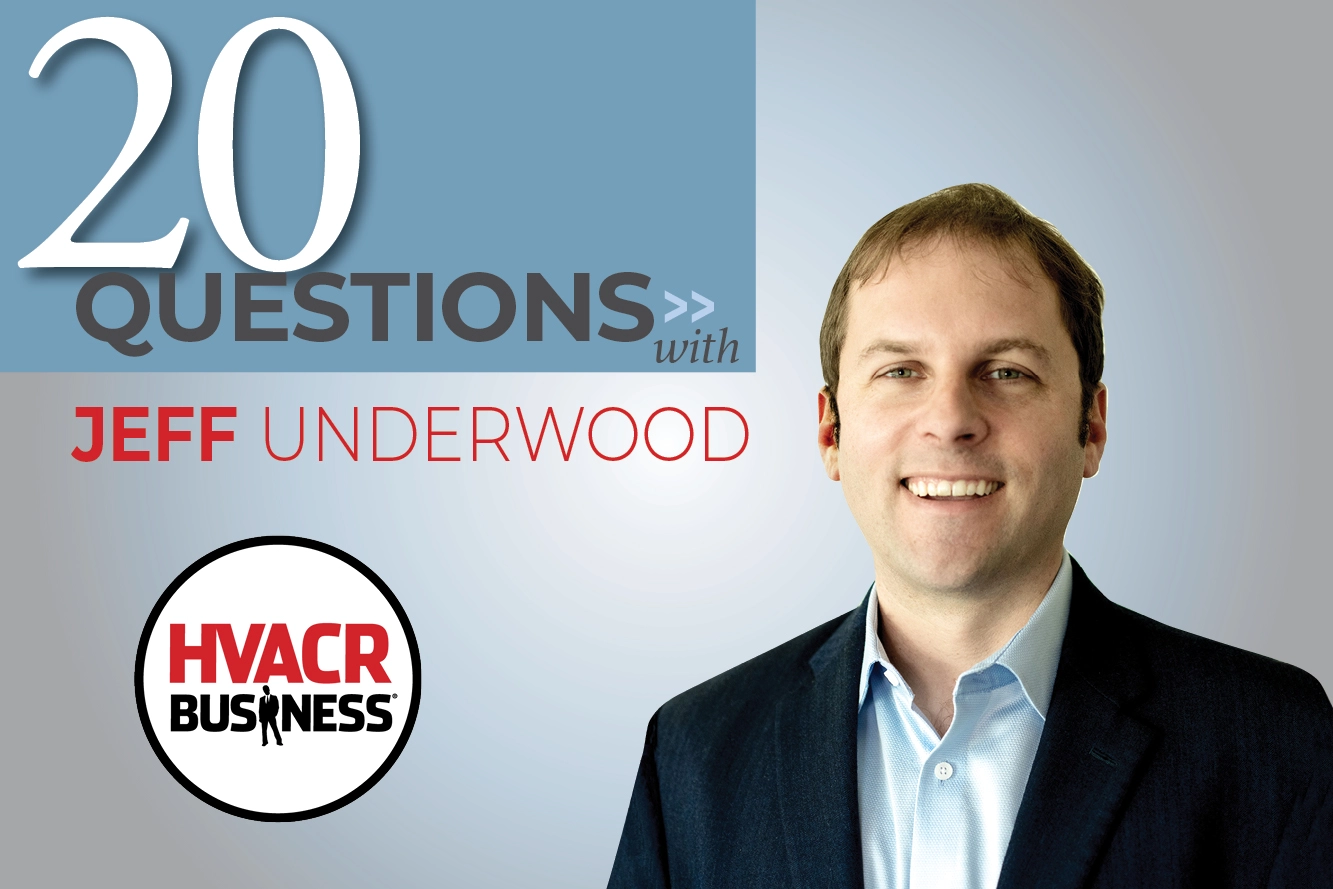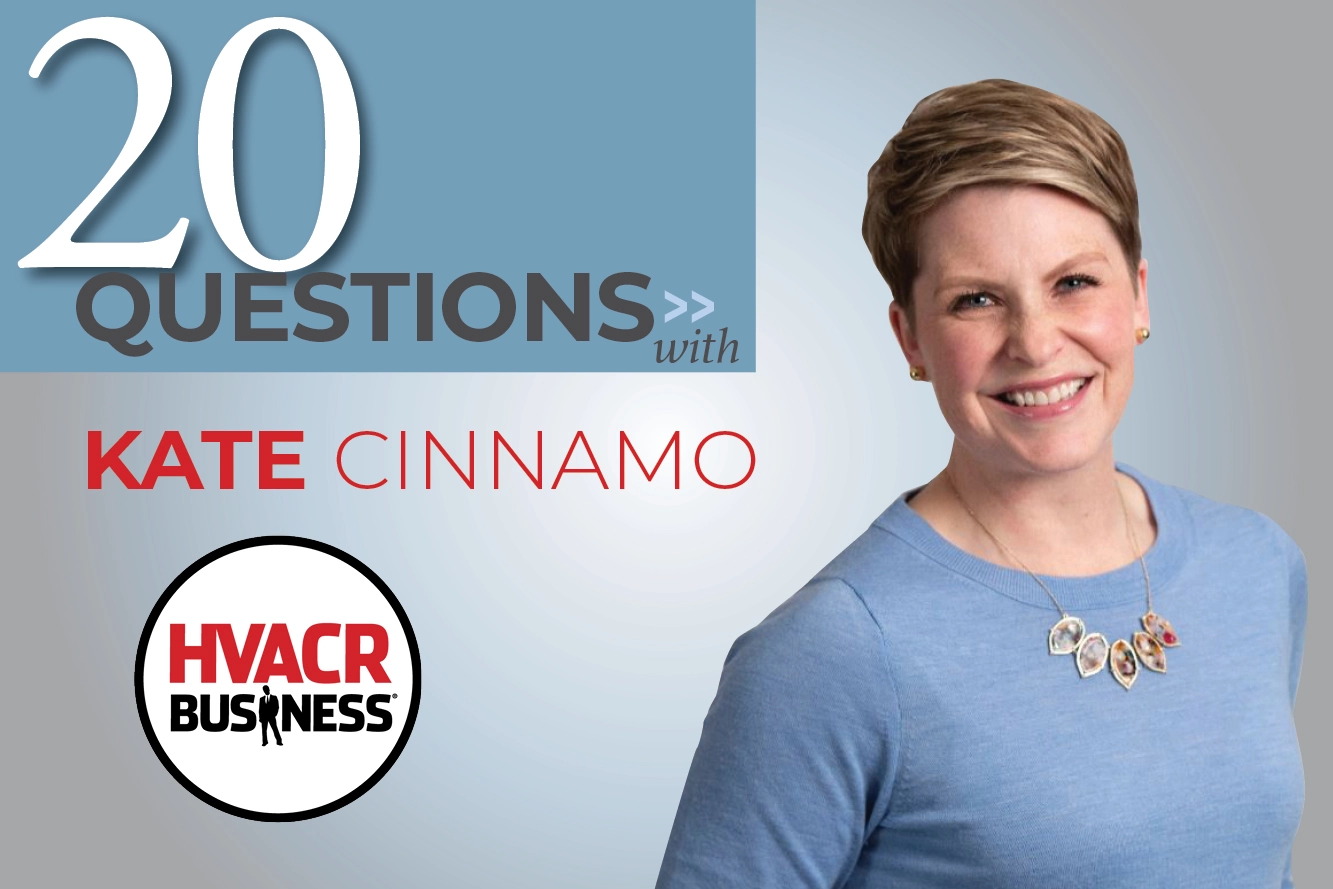We sat down with Emily and Kevin McGrath, owners of Comfort Cavalry Heating & Air in Antioch, Ill. The McGraths, who are 2020 Tops in Trucks Fleet Design Contest winners, discussed starting a business out of necessity, figuring out how to grow and their winning truck design.
1. What’s your background?
Kevin: I started out as a union pipe fitter in Chicago, working for a contractor up until the time of the recession in 2008.
2. What made you go off on your own?
Emily: When the recession hit, Kevin lost his job and of course no one was hiring. At the time, we had a newborn and a 2-year-old, so it was really hard on us. He started to do side work which turned into a full-time job for him. It just happened organically … the demand was there, and we really had no idea what we were doing but went along with it.
Kevin: We started working out of an old, beat up minivan and just kept chugging along. And that went on for nearly 10 years.
3. What was it like in the beginning?
Kevin: We never set out to start a company. There was actually a point in time where I told myself, “I’m not going to advertise anymore because the more I advertise means the more I have to work and I don’t get to spend the time on the jobs.” I was really pushing, pushing, pushing and it was just not beneficial.
4. And then you started to grow?
Emily: We weren’t really planning on ever growing. In fact, before we were Comfort Cavalry, we were Antioch Heating, because we wanted to emphasize that we were local and small. Kevin found out he had some pretty bad back issues. At that point we realized that we couldn’t sustain him doing it alone forever, so we hired our first employee and we grew very rapidly from there over the course of about two and a half years. Now, we have 13 technicians and installers.
5. So, you grew out of necessity?
Kevin: We never really wanted to be a business, but my spine is deteriorating and we didn’t have a choice. We had to bring on people to sustain the business.
6. How did you adjust?
Emily: We worked very hard for this, and to think that we could’ve lost it due to Kevin’s health circumstances … when we realized we had to bring people on, we never took for granted that these guys are here every day showing up for us and without them we would not be where we are today.
Kevin: I said if I have to build a business, we’re going to build a business that, if I were an employee, I would want to work for.
7. What’s your recruitment strategy?
Kevin: We hire people with zero industry experience but have good customer service. I spend most of my days training them from the ground up on how to do HVACR and we compensate them really well. We get them in a van and get them certified and then they’re out the door.
8. How do you ensure quality service?
Kevin: We have a system and process in place for everything from where the technician parks to how he walks up to the door to how he introduces himself. I spent 20 years on my own learning. I had no sales training or anything like that. I said, “Okay, this works, this doesn’t work, this works, this doesn’t work.” And basically, I built a system around that that I could duplicate.
9. What motivates your team?
Kevin: In our shop we have a 70-inch screen that acts as a KPI board for the service technicians. It’s not a competition, it’s a tool. If they see they’re doing really well on demand service, but lacking on maintenance compared to everybody else, that’s where your focus needs to be. They see what they’re doing wrong or what they can do better.
10. How did your role take shape, Emily?
Emily: I could see Kevin was going to need that support and I’m the type of person who can’t stand by and watch. I’ve done everything from coming here to do pack outs and unload garbage to helping take conditioners off the backs of trucks. I’m always here to support them and have been since day one. When this first started, I figured out how to make a website, and how to work QuickBooks.
11. How valuable was that help?
Kevin: I was always a very poor paperwork technician. I always handed all my invoices in late; I wouldn’t settle them up completely and all that stuff. So, when we saw an opportunity to go paperless back then, we seized it. Emily lead that effort and has been a tremendous asset.
12. Do you enjoy working together?
Emily: We’re all very close and so we do take a lot of it home. It has become our life and there’s no denying that we spend a lot of time talking about the business. Our employees are our family. It’s difficult to separate work from personal life because of that family culture.
13. How important is company culture?
Kevin: It’s the most important thing you can do. As far as cultivating it goes, we do weekly meetings, weekly training. We do one on ones where we bring them in … I call it the Judgment Free Zone. I say, “Does anybody want to talk, or anything we can work through?”
14. Has the pandemic affected business?
Emily: It has not affected our business, I don’t think.
Kevin: We’ve had the busiest summer.
15. What’s your safety protocol?
Kevin: Right off the bat we made it clear that we’re going to do non-contact service calls for the coming season and trucks are sanitized on a daily basis. Technicians are wearing masks, they’re wearing shoe covers, they’re maintaining the distancing … they’re not going to be in a house any longer than they need to be.
Emily: If a customer doesn’t feel comfortable with them in their house, they’ll communicate with you via phone or text messaging.
16. How did you prepare?
Kevin: March 13th is when I saw the blood in the water and we just stopped. We had pre-season orders I canceled purchase orders for. I called the distributors, said, “Hold on.” It took like a week or two weeks; we were doing daily meetings on Zoom.
Emily: Yeah, we took two weeks. Then, in April we hit the ground running and we haven’t looked back since.
17. When did you decide to rebrand?
Emily: As we got bigger, people from further out wanted us to come and they were not sure if we did. We always wanted to work with Dan (Antonelli) at Kickcharge Creative, and as we got bigger we decided it would probably be the best time to do it. We reached out to him and his first question was, “Have you ever thought about changing the name?” We weren’t expecting that, but it made sense to us to do it.
18. Where did the new name come from?
Emily: We wanted to make it into something that represented who we were as a company and all of our employees too. Some of them are veterans, and Kevin is a veteran. We support our local Honor Flight and other organizations that support veterans and first responders.
19. How has this new design paid off?
Emily: Yes, we were up 114 percent after the first six months. We have people call all the time … it has helped a lot with recognition.
20. What’s your favorite aspect?
Emily: I love that Dan incorporated the nautical star in the design. This is kind of sappy, but Kevin got a tattoo of the nautical star when we first started dating and he always said it was a representation of what I was to him.






